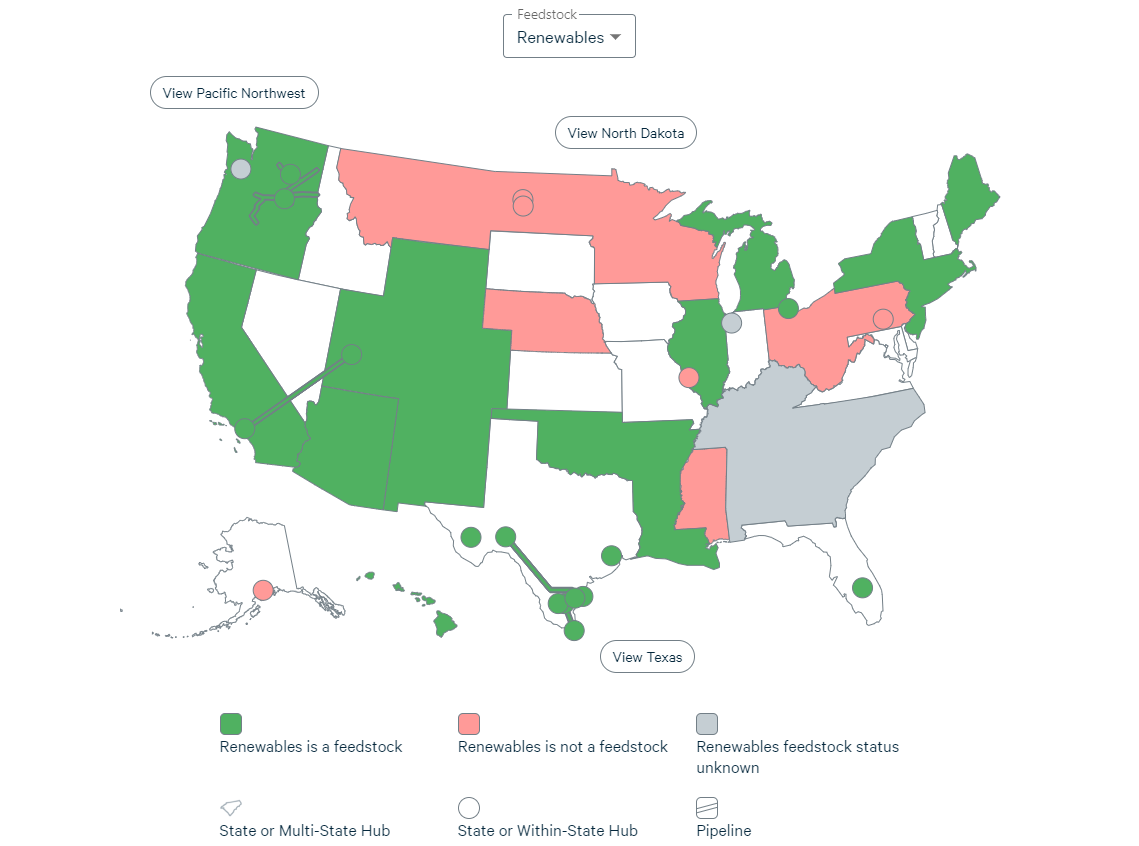Research Team Rolls Out Data Tool to Explore Proposed Clean Hydrogen Hub Projects
Scholars at Resources for the Future have created an interactive map that details project proposals vying for a share of the $8 billion of public funding available under the Department of Energy’s hydrogen hubs program.
Today, a team at Resources for the Future (RFF) is proud to unveil a data tool that explores proposals submitted to the Department of Energy’s new clean hydrogen hubs program. RFF scholars Lucie Bioret, Yuqi Zhu, and Alan Krupnick created the tool to help interested parties learn more about proposed hydrogen projects that could help advance the United States’ transition to a net-zero emissions economy.
In September 2022, after enabling legislation in the Infrastructure Investment and Jobs Act, the Department of Energy launched an $8 billion initiative to fund 6–10 clean hydrogen projects. The chosen projects, dubbed “H2Hubs,” will each receive $400 million–$1.25 billion in public funding (with a match from the private sector) to help create regional networks of clean hydrogen producers, end users, and connective infrastructure. Concept notes were due to the Department of Energy on November 7 and full applications must be submitted by April 7, 2023. As of the end of October, the RFF team is aware of 26 project proposals.

The new tool, which is the first to present information about proposed H2Hub projects in a visual, accessible format, tracks applicants that have publicly expressed intent to pursue this federal funding. The RFF team will treat the data tool as a living document and will update the tool as more groups announce their proposals and as more details about known proposals come to light. The tool includes—where available—information about the proposed hubs’ production methods, end use, project partners, and more. More information such as concept papers and project-specific updates from proposers and the Department of Energy will be added as they become available.
“As the selection process evolves, our new data tool can help highlight certain qualities that Congress and the Department of Energy are looking for in their chosen projects,” project lead and RFF Senior Fellow Krupnick said. “An immense amount of public funding is going into this program, and it’s important that we have a solid understanding of the proposals at play right from the start. We hope that this tool will provide a valuable resource for people who want to learn more about the proposals and, eventually, the projects that will be funded.”
You can learn more about specific proposals and how they are represented within the data tool by reading the introductory text on the data tool webpage.
This data tool is the latest addition to RFF’s growing body of research on hydrogen energy and the H2Hub program, which includes an issue brief and several H2Hub program-specific blog posts. You can read more about our hydrogen work on the RFF website.
Resources for the Future (RFF) is an independent, nonprofit research institution in Washington, DC. Its mission is to improve environmental, energy, and natural resource decisions through impartial economic research and policy engagement. RFF is committed to being the most widely trusted source of research insights and policy solutions leading to a healthy environment and a thriving economy.
Unless otherwise stated, the views expressed here are those of the individual authors and may differ from those of other RFF experts, its officers, or its directors. RFF does not take positions on specific legislative proposals.
For more information, please see our media resources page or contact Media Relations and Communications Specialist Annie McDarris.




